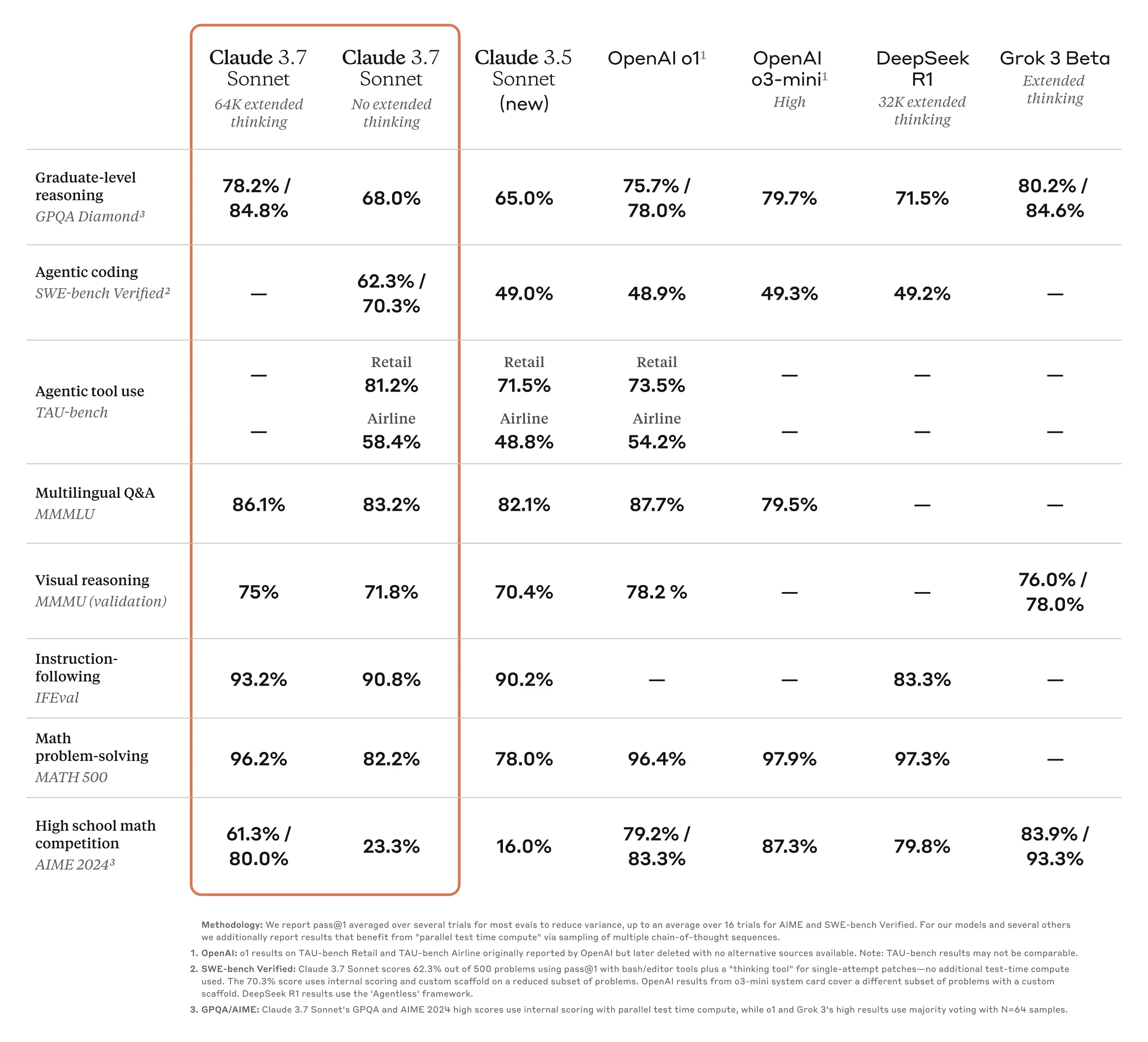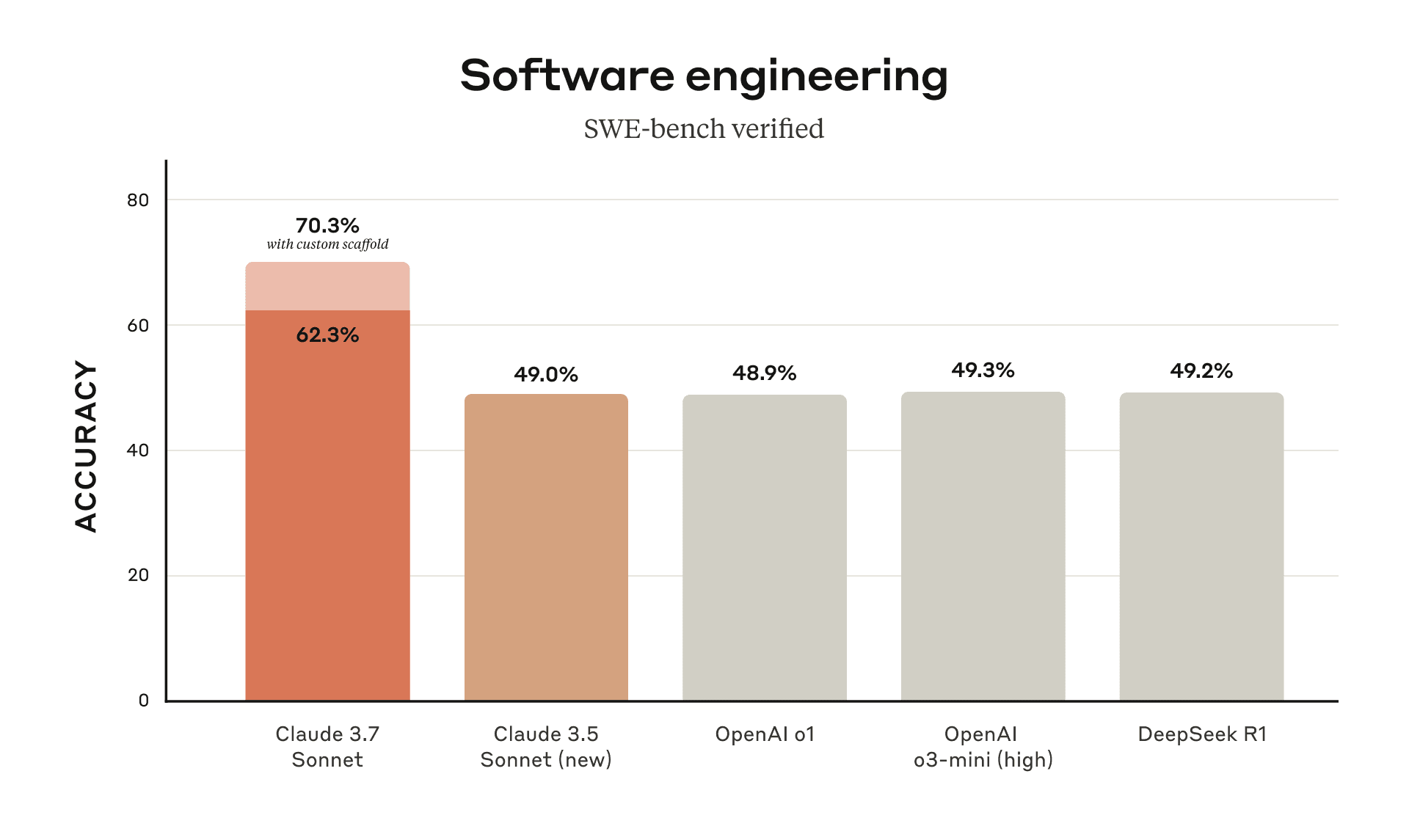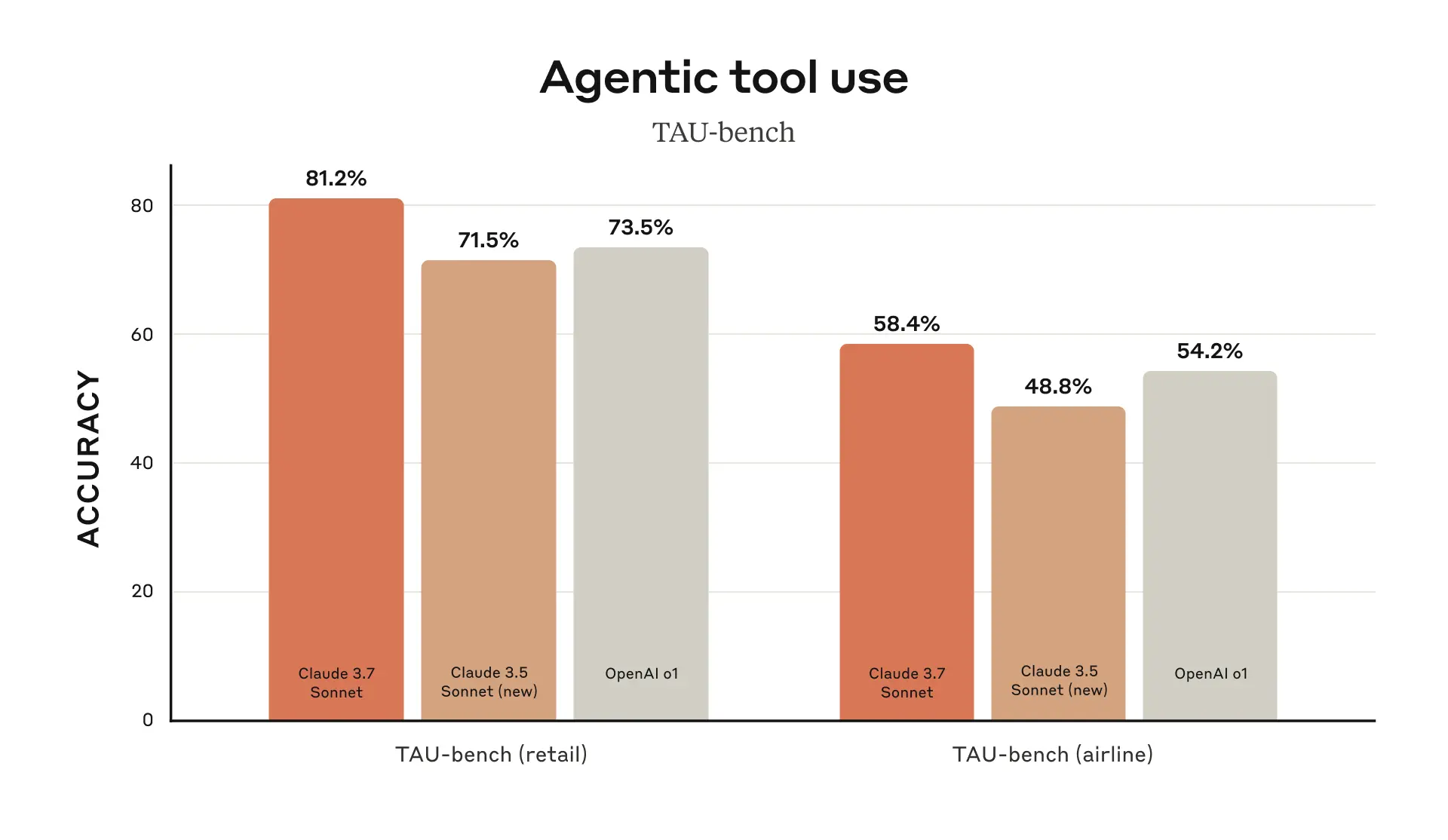Claude 3.7 Sonnet is here, and it brings a new level of flexibility to AI reasoning and coding assistance. Unlike previous models that separate quick responses from deep analytical thinking, Claude 3.7 Sonnet merges both capabilities into a single model. Users can toggle between rapid responses and extended reasoning, making it adaptable for everything from casual queries to complex problem-solving.
Anthropic’s announcement highlights the model’s significant improvements in coding, particularly in handling complex codebases, full-stack development, and advanced tool usage. Claude 3.7 Sonnet retains the same pricing as its predecessor, offering a balance between speed, accuracy, and cost efficiency. API users can even control the model’s reasoning budget, capping extended thinking at a specified number of tokens to optimize cost and response time.

Coding with Claude 3.7 and the Introduction of Claude Code
Claude’s latest iteration isn’t just about better reasoning—it’s also a stronger coding assistant. Real-world testing by companies like Cursor, Cognition, Vercel, and Canva shows the model excels at writing production-ready code, debugging, and making precise edits to complex systems.
Anthropic is also introducing Claude Code, a command-line tool that integrates with GitHub and supports test-driven development, debugging, and large-scale refactoring. Developers can interact with it directly in their terminal, automating tasks that typically require extensive manual effort. Early results suggest Claude Code can complete some tasks in a single pass, saving up to 45 minutes of manual work.

A Shift in AI Reasoning
Unlike previous models that focused on academic benchmarks for math and computer science, Claude 3.7 Sonnet is designed for real-world applications. The extended thinking mode allows the model to self-reflect before answering, improving accuracy in math, physics, and coding.
Anthropic’s approach prioritizes usability over sheer competition scores. For instance, in SWE-bench testing, Claude 3.7 Sonnet successfully handled complex coding tasks with minimal external scaffolding. Its performance in test-driven development, regression testing, and multi-step problem-solving demonstrates an ability to function autonomously on large-scale projects.

Safety and Reliability
Claude 3.7 Sonnet also features improvements in security and reliability. It reduces unnecessary refusals by 45% while making more nuanced distinctions between harmful and benign requests. The updated system card outlines Anthropic’s approach to mitigating vulnerabilities, including resistance to prompt injection attacks.
Looking Ahead
With Claude 3.7 Sonnet and Claude Code, AI-powered coding and reasoning take another step forward. By blending fast responses with deep thinking and integrating practical tools for developers, Claude is shaping into a more capable and adaptable assistant. Whether for debugging, writing complex software, or assisting with high-level reasoning, these updates mark a shift towards AI systems that work more seamlessly alongside human developers.